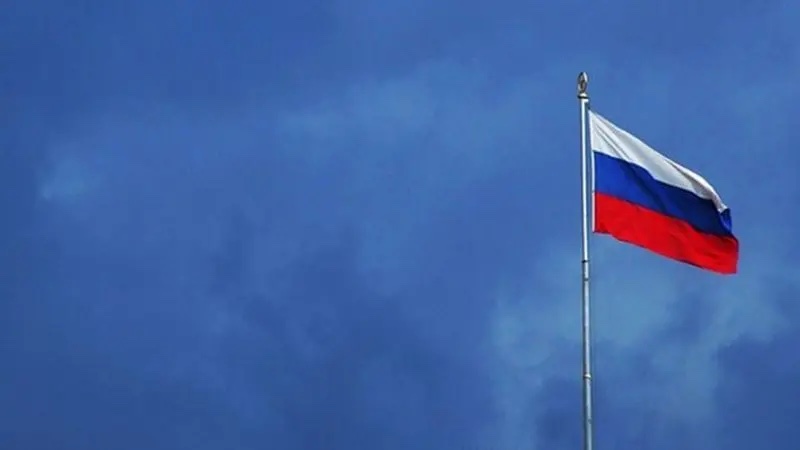
By accusing Gorbachev, Yeltsin, and Western governments of being behind the disintegration of the Soviet Union, Aleksandr Tsipko says, the Putin regime seeks to conceal what for it is a most unwelcome truth: at the end of Soviet times, it was Russians and no one else who wanted a sovereign Russia and were ready to give up the empire to get it.
According to the senior Russian commentator who was deeply involved in Russian political life in the late 1980s and early 1990s, the USSR’s disintegration, which Putin calls the greatest geopolitical tragedy of the 20th century, was “the sovereign choice of the Russian people” (mk.ru/social/2024/06/10/raskryta-trudovaya-pravda-o-raspade-sssr-elcin-ne-byl-predatelem.html).
Tsipko points out that the idea of a sovereign Russia was formulated and promoted by Russian ruralist writers, a group especially close to the thinking and feeling of the Russian people and distant from many democrats and certainly the West, at the RSFSR Writers’ Congress in 1988.
Aleksandr Yakovlov, then a close advisor to Mikhail Gorbachev and someone often presented by the Putinists as “a CIA agent” who supposedly undermined the Soviet Union, advised Tsipko, then one of his aides, at the time that “you should read it and you will understand how the disintegration of the USSR began.”
“I can give many other examples to show that today’s historians who are putting out conspiracy theories and linking all the events of post-Soviet history to a project of the CIA do not in fact have the slightest idea about what happened in the country after Stalin and what in fact led to the collapse of the USSR,” the Russian commentator says.
Indeed, Tsipko continues, “all this conspiracy theory is designed to conceal” that the Russians themselves having suffered the depredations of Soviet power wanted sovereignty for a Russian country and were not ready to go into the streets to fight for the preservation of the old empire.
The commentator notes that he personally was “at the time a categorical opponent of the disintegration of the USSR, spoke against sovereignty for the RSFSR, and, understood, even with Yakovlev’s comments, that the idea of sovereignty would lead to the demise of historical Russia.”
But despite that, Tsipko says, Boris Yeltsin was positively inclined toward him and in December 1992 even proposed that Tsipko become minister for nationality affairs. The current Russian commentator says he rejected that proposal because he “felt that sooner or later this would end in blood, and already in October 1993 my fears were proved true.”
Despite what today’s conspiracy theorists say, “today one must see the truth” and it is this: Yeltsin, “who really after his March 1991 meeting with striking Kememovo miners took the decision to actively support the idea of sovereignty for the RSFSR fulfilled he deep demands of the Russian people.”
The Beloveshcha accords that put the final nail in the coffin of the USSR were “based on the deep-seated need of the Russians to get rid of the empire, where they had never been a metropolis and where they lived at least during Soviet times even worse than the other peoples” under Moscow’s rule, Tsipko argue.
“Today’s patriots,” he points out, “have forgotten what was heard everywhere especially in 1991 – ‘stop feeding the Caucasus,’ ‘stop feeding Ukraine,’ and ‘we must give all the natural reserves of Russia to its people” rather than to anyone else. Thus, “the idea of killing the empire belonged to the Russian people of the USSR” who were tired of living in poverty.
These reflections, Tsipko says, arise when he and others visit the Yeltsin Center that some in Moscow want to close. Not only what is one display there but even more what is not sends a cleare message. In the museum, there is no reference to the fact that the Russian people and above all the Muscovites didn’t support the coup” in August 1991.
That is an important truth. A second, which is not mentioned in the museum, is that “no one protested against the Beloveshcha agreements” or that Soviet officers who had sworn loyalty to the USSR and the CPSU almost to a man changed sides overnight and supported Yeltsin and Russian sovereignty.
Another truth that everyone should remember despite efforts to get them to forget by accusing Yeltsin of treason and betrayal is this: “After the defeat of the GKChP, after Yeltsin’s glorious victory, there was no political foce which could have opposed the disintegration of the USSR.”
Democratic Russia actively supported the idea of the disintegration of the USSR, and that political force in fact “actively cooperated with the Democratic Party of the US.” But the American government under President George H.W. Bush, did not favor the coming apart of the USSR and spoke against it in Kyiv on August 1.
Tsipko says that he knows that to be the case on the basis of a month-long visit he paid to Washington at the time.
Within Gorbachev’s command, the commentator continues, there were “only three people – Georgy Shakhnazarov, Andrey Grachev, and himself who actively resisted the idea of the sovereignization of the RSFSR.” The others followed what they were confident were the views of the majority of the Russian people rather than someone else, whatever the Putinists say.
